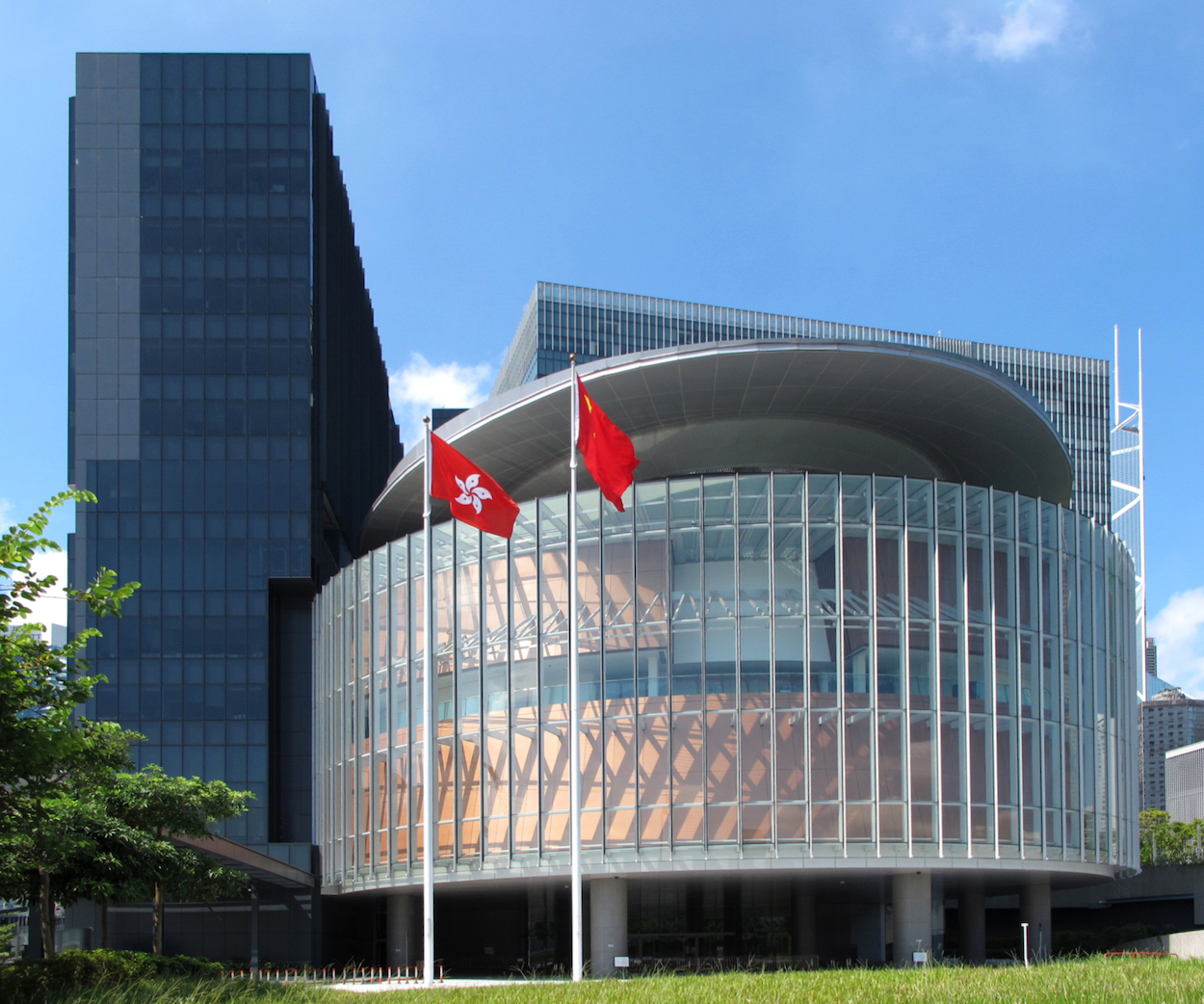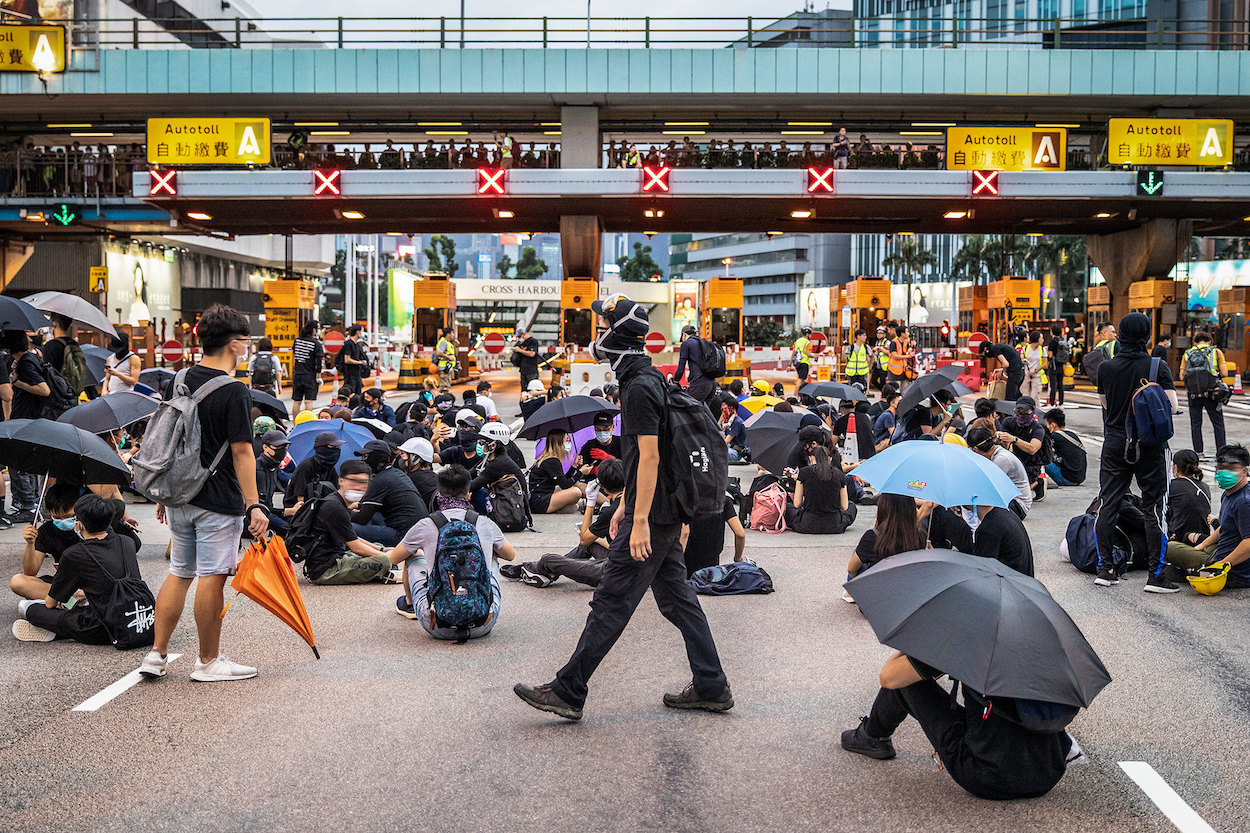by Brian Hioe
語言:
English
Photo Credit: Studio Incendo/Flickr/CC
NEWS BROKE last week that the Hong Kong government intended to disqualify a dozen pro-democracy candidates from the Hong Kong Legislative Council (LegCo) elections, which were originally scheduled to take place in September.
Among those disqualified were Joshua Wong, former Stand News reporter Gwyneth Ho, former Hong Kong Federation of Students deputy secretary-general Lester Shum, localists Alvin Cheung of Civic Passion and Ventus Lau, and Kenneth Leung, a past LegCo member who formerly represented the Accountancy Functional Constituency. These candidates represented a large swath of the pro-democracy camp in Hong Kong, ranging from relative moderates to localists, signaling that for the Hong Kong government, it considers all members of the pro-democracy camp as though they might as well be advocates for Hong Kong independence.
 Photo credit: Studio Incendo/Flickr/CC
Photo credit: Studio Incendo/Flickr/CC
As such, it came as a further surprise later in the week when Hong Kong Chief Executive Carrie Lam announced that LegCo elections would be postponed for one year, using the ongoing COVID-19 pandemic as a pretext for the delay. Although Lam had previously suggested that LegCo elections could be postponed, it seems rather extraneous to first disqualify pro-democracy candidates from running in LegCo elections and then announce that LegCo elections are to be delayed altogether.
It is possible that the decision to delay LegCo elections was made after the disqualifications already took place, or that this staggered series of events was carried out in order to make the claim that the delay was because of the developing COVID-19 situation seem more legitimate.
But it is more likely that the Hong Kong government simply wishes to hedge its bets, given that the pro-democracy camp would likely continue to nominate substitute candidates for any of its candidates that are disqualified, with disqualified candidates throwing their endorsements to new candidates. This is an electoral strategy that the pro-democracy candidates have adopted since political candidates started to be prevented from running for office on the basis of their political views in 2016, beginning with localist Edward Leung. Moreover, as attested to in 2019 District Council elections, LegCo elections would likely see large gains for the pro-democracy camp for whichever candidates were allowed to run.
At the same time, the delay of the 2020 LegCo elections puts Hong Kong in unprecedented legal territory. Besides that some have questioned the legality of Lam’s move, it is a question, for example, as to whether the current members of LegCo will continue to serve until next year, though Lam has suggested in comments that she hopes for this to be the case.
It is also possible that the Hong Kong government simply intends to cancel elections altogether in Hong Kong. The Hong Kong government could simply find another pretext to call for another delay to elections once one year passes. Indeed, it is a common move for authoritarian governments to continually postpone elections as a means of avoiding holding them, to begin with.
 The Hong Kong Legislative Council complex. Photo credit: 17jiangz1/WikiCommons/CC
The Hong Kong Legislative Council complex. Photo credit: 17jiangz1/WikiCommons/CC
Likewise, if the current slate of LegCo members continue to serve because no new elections are held, this could prove a means of providing for lifetime rule. One notes that this occurred in Taiwanese history after the KMT arrived in Taiwan.
Because the Chinese mainland was under the political control of the CCP, this was used as a pretext to avoid holding elections for the constituencies of the National Assembly. As a result, legislators that came to Taiwan with the KMT representing constituencies in China were allowed to serve lifetime terms without new elections, given that elections could not be held in their home constituencies, which were under CCP control. Consequently, the National Assembly was referred to as the “Ten-Thousand Year National Assembly.”
Regardless, arrangements for next year’s LegCo will be stipulated by China’s National People’s Congress (NPC). The NPC is likely to use the delay as a mechanism to further restrict political representation by pro-Democracy politicians.
In the meantime, the Hong Kong government continues to widen the scope of its targets under the national security law passed by the NPC in July. Last week, four former members of Student Localism were arrested for social media posts by the organization, despite that Student Localism had announced that it would be disbanding in Hong Kong and would only be continuing activities overseas. The four former members of Student Localism were between sixteen and twenty-one years old.
 Photo credit: Studio Incendo/Flickr/CC
Photo credit: Studio Incendo/Flickr/CC
The Hong Kong government seems to have indicated that it intends to place particular emphasis on targeting overseas individuals and groups, with the Hong Kong police issuing arrest warrants for six individuals that have fled abroad last week. Among those targeted as Nathan Law of Demosisto, who fled to the UK, Ray Wong of Hong Kong Indigenous, who was granted asylum in Germany, Wayne Chan of the Hong Kong Independence Union, community organizer Samuel Chu, Simon Cheng, the former British consulate worker who was kidnapped by the Chinese government while returning to Hong Kong from Shenzhen last year, and eighteen-year-old Honcques Laus, a former member of Student Localism.
This, too, represents a broad spectrum of individuals, who have fled to a number of different countries, including the US, the UK, the Netherlands, and Germany. Samuel Chu’s arrest warrant has drawn particular attention, seeing as Chu only holds American citizenship, and Nathan Law of Demosisto has announced that he would cut ties with his family in order to avoid their being targeted. Either way, one generally expects the Hong Kong government’s list of targets to further expand in the coming weeks.

